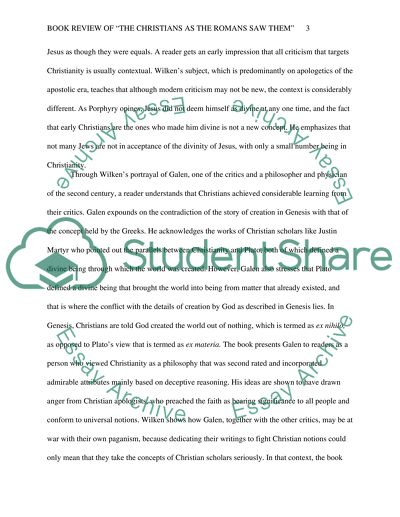Cite this document
(“Book Review of The Christians as the Romans Saw Them Report/”, n.d.)
Retrieved from https://studentshare.org/religion-and-theology/1491195-book-review-of-the-christians-as-the-romans-saw
Retrieved from https://studentshare.org/religion-and-theology/1491195-book-review-of-the-christians-as-the-romans-saw
(Book Review of The Christians As the Romans Saw Them Report/)
https://studentshare.org/religion-and-theology/1491195-book-review-of-the-christians-as-the-romans-saw.
https://studentshare.org/religion-and-theology/1491195-book-review-of-the-christians-as-the-romans-saw.
“Book Review of The Christians As the Romans Saw Them Report/”, n.d. https://studentshare.org/religion-and-theology/1491195-book-review-of-the-christians-as-the-romans-saw.


